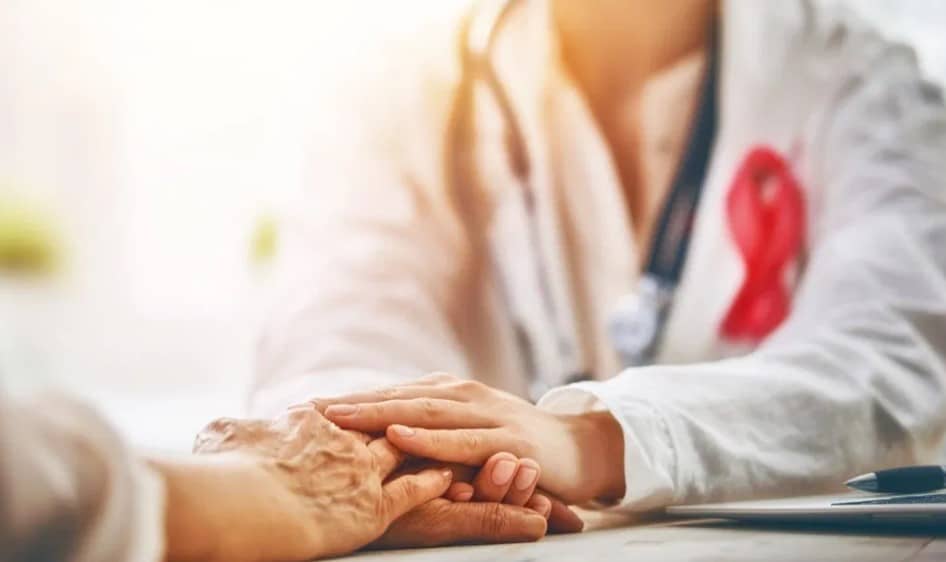Anyone can get cancer. It’s one of the most unpredictable diseases out there. It’s also one of the leading causes of death.
According to the American Cancer Society, the estimated number of new cancer cases in 2022 was 1.9 million, and the estimated number of cancer deaths was 609,360.
At the same time, the World Health Organization (WHO) reports that somewhere between 30% and 50% of all cancer cases are preventable.
So if you’re worried about getting cancer (as you should be, especially as you age), here are some things you can do to help lower your cancer risk:
- Don’t use tobacco
Tobacco in all its forms (including cigarettes, cigars, and chewing tobacco) has been linked to many kinds of cancer: cancer of the throat, lungs, mouth, pancreas, bladder, kidney, and more. Even secondhand smoke can lead to an increased risk of cancer.
So stay away from tobacco as much as possible. It’s best never to start in the first place, but it’s also never too late to quit. Get help if you need it. There are a lot of addiction recovery programs out there and products like nicotine patches that can help you kick the bad habit.
- Limit how much alcohol you drink
An excessive amount of alcohol intake can increase your risk of various cancers, especially cancers of the mouth and the liver.
Again, zero alcohol is best. But if you must have a drink occasionally, limit yourself to one drink per day at most, and try drinking non-alcoholic beverages instead.
- Eat a healthy diet
Eating a healthy diet can reduce your risk of many cancers, including colon and prostate cancer.
The key to a healthy diet is balance. Eat a lot of fruits and vegetables. Limit your intake of refined sugars (especially from sugary drinks like soda) and processed meats (especially saturated fat and red meat). If you’re looking for a specific diet to follow, consider following a Mediterranean diet, which emphasizes plant-based foods and healthy fats.
- Stay lean
On a similar note, staying lean helps reduce your risk of cancer. This is because obesity is linked to many forms of cancer, including those of the liver, kidney, colon, and breast.
To avoid gaining too much weight, watch your calorie intake. Try to eat only until satisfied, not until you’re “full.”
- Exercise regularly
Physical activity is linked to a lower risk of breast, endometrial, and colorectal cancers. It also helps strengthen your immune system, which can help reduce the risk of some cancers.
So try to exercise regularly. Thirty minutes of physical activity every day is a good rule of thumb. Choose activities or sports you enjoy and alternate between low- and high-intensity exercises. The most important thing, however, is consistency. You’ll get the most benefit from exercise by making it a regular habit.
- Protect your skin from the sun
Too much exposure to the sun can cause skin cancer, which is the most common form of cancer. However, it’s also the most preventable.
To prevent skin cancer, wear sunscreen anytime you’re out in the hot sun (especially in summer). You can also cover yourself with long-sleeved clothing, hats, and sunglasses. Stay indoors during the hottest parts of the day and don’t use tanning beds or sunlamps.
- Avoid exposure to industrial and environmental toxins
Too much exposure to some industrial and environmental toxins like asbestos fibers, benzene, aromatic amines, and polychlorinated biphenyls (PCBs) can also lead to cancer.
For example, exposure to asbestos can cause pleural mesothelioma cancer. That’s why veterans who suffered asbestos exposure from damaged ships in war make up 30% of mesothelioma victims.
- Avoid risky behaviors
Some infections incurred through risky behaviors like unprotected sex and sharing drug needles can contribute to a higher risk of cancer. These infections are primarily Hepatitis B and Human Papillomavirus (HPV).
So be safe by making sure you use condoms and never inject yourself with used needles. You can also get vaccinated against Hepatitis B and HPV, though this doesn’t eliminate the need to follow safe health practices.
- Get enough Vitamin D
Getting enough vitamin D may help reduce the risk of prostate and colon cancer. Experts recommend getting anywhere from 400 to 800 international units (IUs) of vitamin D per day. However, it can be difficult to get this much without supplements. So consider adding a vitamin D supplement to your diet.
- Get regular medical care
Lastly, go to the doctor regularly so that you can get the medical care you need. Share your family history with them and get any recommended cancer screenings. This helps you detect cancer early when treatment is most effective. The sooner you identify it, the better chance you have of fighting it off.
Final thought
Unfortunately, there’s no way to completely eliminate the risk of cancer. But if you follow the steps above, you can dramatically reduce the risk. So start implementing some of these tips today!


